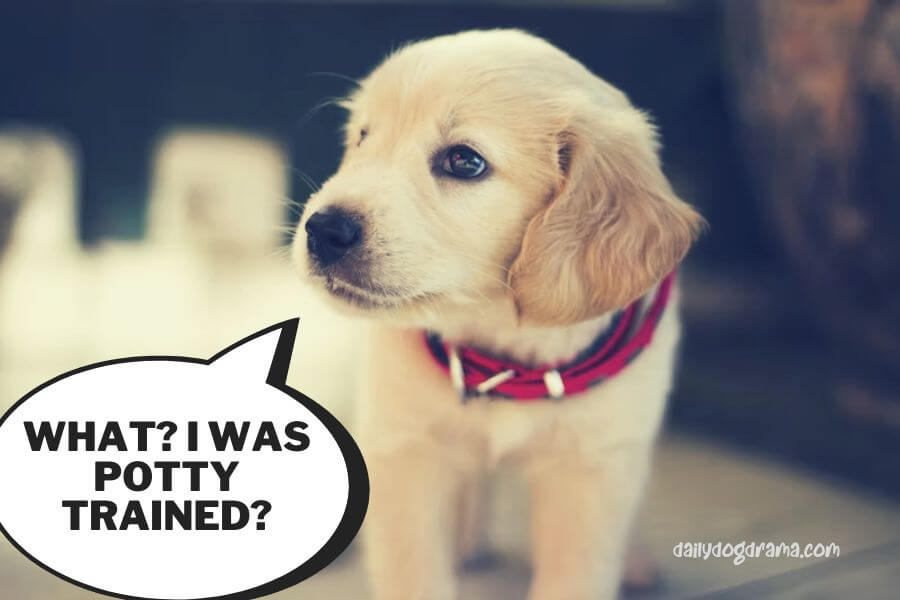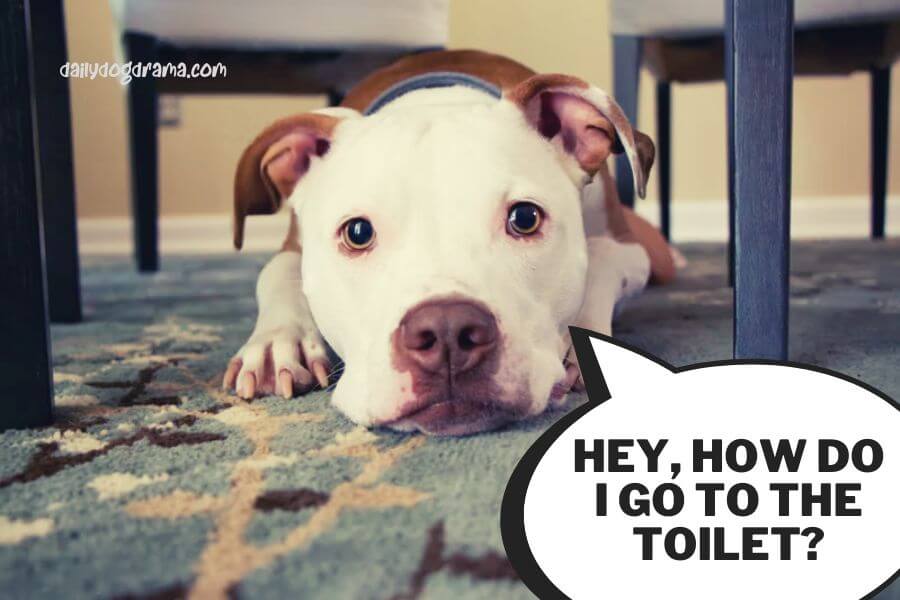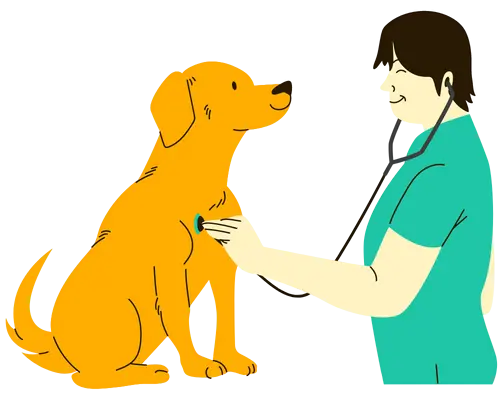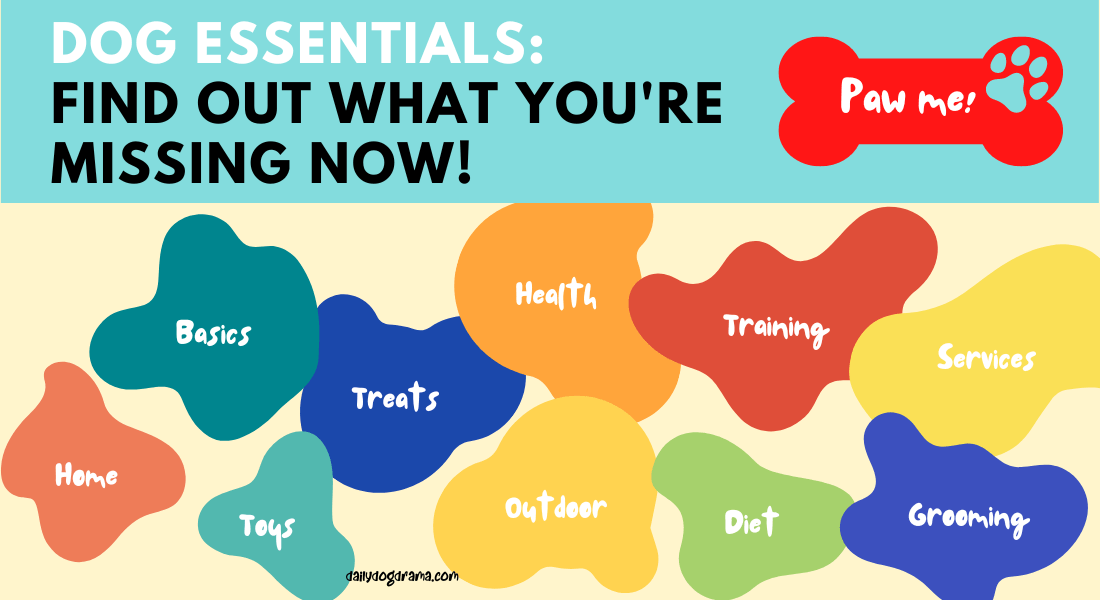Do you know what DOG ESSENTIALS you are missing out? Find out now!
Zack Keithy, our author, is a certified veterinarian technician (UC Blue Ash) for over 6 years (contact him here). The articles written here are based on his expertise and experience, combined with a review by our expert vet reviewers including Dr M. Tarantino. Learn more about us here.
If you’re used to having a happy pup who is eager to go outside and potty, then there’s nothing worse than realizing that your dog has regressed back into the bad habits she had before you started training her.
That can be especially frustrating if you’ve already gone through the trouble of getting her house-trained, but it’s not an uncommon occurrence after spaying or neutering. Worse, it steps in its urine and dirties the entire house!
This is more common with puppies since their brains are not as developed and can easily forget their training.
If this happens to you, don’t panic!
All you need are just take some steps to help your dog out and make sure that she knows where she’s supposed to go during those first few days after surgery—and beyond.
Medical Questions? Talk to a Veterinarian 24/7.
Connect one-on-one with a licensed vet who will answer your questions in minutes.
*Article may contain affiliate links to retailers like Amazon and Chewy. Learn more on our disclosure page.

- Does Spaying or Neutering a Dog Affect Potty Training?
- What to Do About the Regression From Potty Training After Surgery
- When Should You Restart Training if Your Dog Regresses After Spaying/Neutering?
- Should I Spay or Neuter My Dog Before or After I Potty Train It?
- Does Spaying or Neutering Affect Bladder Control?
- How Long Will the Effects of Being Spayed/Neutered Last?
- Frequently Asked Questions (FAQs)
- In Conclusion: Potty Training Regression After Spaying/Neutering
Does Spaying or Neutering a Dog Affect Potty Training?
Yes, it sometimes does, and there are some common reasons for that.
Stress
Stress is one of the biggest reasons that dogs regress when they’ve been house-trained.
Spaying or neutering can be extremely stressful for dogs, especially since it’s a major surgery and your dog was put under anesthesia.
If your pup starts having accidents in her crate shortly after surgery, then there’s a good chance that she isn’t feeling well due to stress.
The same goes for any other changes you’ve made in your dog’s life recently, like moving into a new home or adding another pet into the mix.
Doggy says, consider reading this article too: Puppy Sleeps in Crate at Night but Not During Day? [RESOLVED]
Hormonal changes
Spaying or neutering can cause your dog’s hormones to fluctuate, which can lead to mood swings, increased aggression, and other behavioral issues.
Dogs are naturally territorial, and when their hormones are out of whack they can sometimes feel anxious and stressed out.
This is just like in humans who go through menopause, so these changes are to be expected.
If you notice that your pup is having accidents in her crate right after being spayed or neutered, then this could be the reason why.
Doggy says, you might like this too: Chihuahua Peeing in the House [What Now?]
Pain
Due to the fact that dogs are unable to communicate with us, we often don’t realize when they’re in pain.
If your dog is experiencing some sort of discomfort and you notice any abnormal behavior (possibly scratching at spay incision wound with its hind legs), then this could lead to behavioral issues like urinating or defecating in its crate.
Doggy says, you might like this too: Dog Goes Crazy in The Crate? [6 Solutions]
Confusion
Dogs are very sensitive to their environment, and when something changes they may become confused.
Think about it. Your dog has just gone through a major operation to remove its reproduction organs.
While doing so, it is heavily sedated, so there really should not be any surprise to know that they are confused upon waking up.
This should not last more than a day or two though.
Doggy says, consider reading this too: Dog Pooping After Spaying – Common Issues
Medical complications
Sometimes things can go wrong during the surgery, and there are many possible complications that could arise.
The most common ones include internal bleeding and infection.
If your dog has these complications it will need to be taken back to the vet right away to diagnose the issue.
This is why post-op care for your dog is so critical for a safe and healthy recovery.
Doggy says, you may like this too: German Shorthaired Pointer Peeing in the House [What to do]
What to Do About the Regression From Potty Training After Surgery

So what do you do if your dog is regressing from their potty training after surgery?
- Keep your dog on a schedule. Dogs respond best to consistency—if they know when they can expect to go outside, they’ll start learning when it’s time for them to make a pit stop.
- Ensure a calm and relaxed environment. It’s important to keep them calm and relaxed so that they don’t strain themselves too much (consider using a calming spray)
- Using a crate/playpen. This will help prevent accidents and keep your dog safe while they recover from surgery. If you don’t want to use a crate, consider using a playpen instead. A playpen is like a small, enclosed area where your dog can go in and out of as they please—it’s like having their own little room that they can go into whenever they feel the need!
- Install baby gates. If you have an open floor plan, try keeping your dog in one room while everyone else is busy doing other things in another part of the house so she feels safe while everyone else is occupied elsewhere. You can easily create barriers with baby gates
- Be patient. It may take some time for them to get back into their routine after surgery, so don’t give up on potty training entirely just yet—it’s important for dogs’ health and comfort levels that they learn how to go outside regularly!
If none of these tips work out for you and you feel like he/she has regressed from his/her potty training after surgery, consider consulting with a professional behaviorist who can provide additional guidance on how best to approach this issue.
Doggy says, consider reading this too: Puppy poops 2 hours after eating?
When Should You Restart Training if Your Dog Regresses After Spaying/Neutering?
Within a couple of days, you should restart potty training your dog.
Before you do it, take note of its behavior and note down the times when it pees or poops.
This can help prepare you to bring your dog to its pee tray to do its business and prevent accidents from happening.
If your dog is trained to do it outside, then this process will have to wait a longer period of time until it is suitable to head outdoors.
Doggy says, check this out too: Cavalier King Charles Spaniel Peeing in the House [Solutions]
Should I Spay or Neuter My Dog Before or After I Potty Train It?

Puppies can be trained as young as 8 weeks old, and potty training is one of the most immediate and basic ones you can give at that age.
Contrast that to the age when spaying or neutering is suitable, which is above 6 months.
To answer the question, there really is no right or wrong answer, and the two are somewhat unrelated.
The sensible thing to do here is to begin training your dog as soon as you get them, rather than using the procedure as a benchmark.
Doggy says, read this too: Beagle Peeing in the House: Stop It in Its Tracks
Does Spaying or Neutering Affect Bladder Control?
The evidence shows that female dogs which have been spayed have a 20% likelihood to develop Urinary Tract Infection (UTI) in their lifetime, and this will happen around 2.9 years after the operation.
Dogs that have been spayed are also more susceptible to involuntary urination due to hormonal imbalance, although that is not the only cause.
Likewise for male dogs, neutering removes the testicles, which produce testosterone.
With it lacking, there will be a hormonal imbalance that can lead to urination issues.
Understanding this issue with your vet will go a long way in helping you know how to deal with them when they present themselves.
Doggy says, read this too: Dog won’t move with cone on?
How Long Will the Effects of Being Spayed/Neutered Last?
Usually, it is only the first two weeks after undergoing the operation that you will notice the effects.
Once your dog gets over the initial shock, he or she should return back to normal.
However, you should also be aware that there are some cases where it can take up to six months before your pet is completely healed and back in shape.
During these 2 weeks, you will need to impose some restrictions, such as:
- Lesser activities like running and jumping
- No contact with its wound including licking or scratching
- No showering or swimming
You will also need to monitor the area for swelling, redness, and bleeding, as well as behavioral changes in your dog.
Hey there, sorry to interrupt but I wanted to tell you about an online vet service I’ve been using for years.
An in-person visit with one is great, but it’s not always an option.
Now, thanks to technology, you can speak to one without leaving your home.

Got something to ask a vet?
Talk to one anytime, 24/7.
* Don’t use this service for emergencies.
Alternatively, a vet can come out to you instead (exclusive to our readers: use THEVETS15 for 15% off).
SCHEDULE AN APPOINTMENT HEREThank you. The rest of the article continues below.
Doggy says, you might like this too: Pros and Cons of Neutering a Doberman Pinscher
Frequently Asked Questions (FAQs)
How long does it take for hormones to balance after spaying/neutering?
It will take around 2 to 4 weeks for your dog’s hormones to become balanced after spaying or neutering. During this time, you might notice behavior such as frequent whining, sensitivity to touch, or even becoming more aggressive.
Why is my dog pooping in the house after spaying/neutering?
The main reason your dog poops in the house after sterilization is due to pressure on the bowels, hormonal changes, as well as diarrhea induced by stress and anxiety.
Does neutering help with potty training?
It does not help directly, but dogs that are neutered are less likely to urinate at any spots it desires as there is less tendency for them to mark their territory.
In Conclusion: Potty Training Regression After Spaying/Neutering
The best thing you can do is to be patient with your dog and realize that the regression is temporary.
You can also help your dog out by keeping her on a schedule and using a crate or baby gates if that’s something you’ve never done before.
This kind of regression is mostly temporary and will likely pass within a few days or a week after spaying or neutering.
Just be patient with your new friend as he or she adjusts to a new life!
Check out our other dog care articles such as your dog’s bones cracking when getting up, why is your dog licking after tooth extraction, whether belly bands can cause UTI in dogs, and many more!
You’ve made it to the end, but I hope it’s not the end of our journey. We want to hear your voice! Share your thoughts, problems, suggestions, or anything related to your dog in the comments section. And don’t forget to join our newsletter today too.




